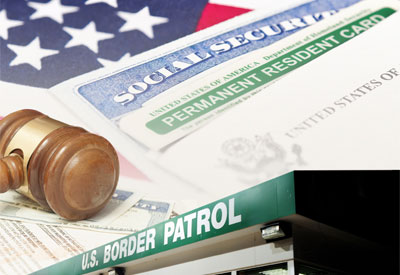In September 2025, Greece’s parliament passed a controversial new law targeting failed asylum seekers, introducing prison terms, hefty fines, and extended detentions. This legislative shift, driven by Prime Minister Kyriakos Mitsotakis’s conservative government, marks one of Europe’s toughest stances on undocumented migration. For thousands of migrants seeking a new life in Greece, the law reshapes their journey, intertwining dreams of safety with the stark realities of policy enforcement. This article explores the complexities of Greece’s immigration landscape, from visa processes to cultural adaptation, weaving in personal stories of resilience and practical guidance for navigating this evolving system.
Understanding Greece’s New Immigration Law
The new law, passed on September 3, 2025, imposes severe penalties on migrants whose asylum applications are rejected. Those who remain in Greece after a 14-day departure deadline face prison terms of two to five years, fines up to €30,000, and electronic monitoring. Detention periods for undocumented migrants have been extended from 18 to 24 months, and the previous option for long-term undocumented migrants to legalize their status after seven years has been eliminated. Migration Minister Thanos Plevris defended the measures, stating they prioritize the “protection of Greek citizens.”
“The Greek state does not accept you,” Plevris told parliament. “You only have one choice: to go back. You’re not welcome.”(
The law follows a temporary suspension of asylum applications from North African sea arrivals, enacted in July 2025, which drew sharp criticism from human rights groups for violating international law. The suspension, coupled with the new penalties, reflects Greece’s response to a surge in migrant arrivals on Crete and Gavdos, with 9,000 arrivals recorded in the first half of 2025, a 350% increase from 2024. While the government argues these measures deter illegal migration, critics warn they criminalize vulnerable people and risk breaching the principle of non-refoulement, which prohibits returning refugees to countries where they face harm.
(Why the Law Matters
For asylum seekers like Mustafa, a 20-year-old Sudanese refugee, the new law transforms Greece from a beacon of hope into a potential prison. Fleeing war in Sudan, Mustafa endured months in Libya before reaching Crete, only to be detained in the Amygdaleza camp near Athens. “We are living here like a prison,” he shared, describing barefoot walks on scorching ground and minimal access to information. His story highlights the human cost of Greece’s hardline approach, where genuine refugees face detention without the chance to apply for asylum.
(Yet, the government insists the law targets “spoiled” migrants who exploit Europe’s systems, distinguishing them from genuine refugees who will still receive protection. This distinction, however, is murky in practice, as the suspension of asylum claims and extended detentions often fail to account for individual circumstances. Human rights organizations, including Amnesty International, have condemned the measures as discriminatory and inhumane, urging Greece to reverse course.
(Navigating the Visa and Asylum Process in Greece
Greece’s immigration system is a labyrinth of bureaucracy, legal nuances, and shifting policies. For those seeking to enter legally or apply for asylum, understanding the process is critical. Below is a step-by-step guide to navigating Greece’s visa and asylum pathways, updated to reflect the 2025 changes.
Step 1: Determine Your Entry Pathway
Greece offers several visa types, including tourist, work, and family reunification visas, alongside asylum applications for those fleeing persecution. Tourist visas (Schengen visas) allow stays up to 90 days but are not a pathway to residency. Work visas require a job offer from a Greek employer, often in sectors like agriculture or tourism, where labor shortages are acute. Family reunification visas apply to those joining EU citizens or legal residents. Asylum seekers, however, face stricter scrutiny, especially after the July 2025 suspension for North African arrivals.
(Step 2: Gather Documentation
Visa applications require a valid passport, proof of funds, health insurance, and purpose-specific documents (e.g., employment contracts or family ties). Asylum seekers must provide evidence of persecution, such as identification documents, witness statements, or proof of conflict in their home country. Legal aid NGOs, like the Greek Council for Refugees, are invaluable for assembling these documents, especially for those detained without access to resources.
(Step 3: Submit and Await Processing
Visa applications are submitted through Greek consulates abroad or, for some work visas, within Greece via the Ministry of Migration and Asylum. Asylum applications, when not suspended, are lodged at Regional Asylum Offices (RAOs). Processing times vary: visas may take weeks, while asylum decisions can stretch months due to backlogs. The new law accelerates deportations for rejected applicants, making legal representation critical during appeals.
(Step 4: Know Your Rights
Asylum seekers have the right to appeal rejections, but the 14-day departure window under the new law leaves little room for error. Detained migrants can seek legal aid, though access is limited in facilities like Amygdaleza. The European Court of Human Rights has intervened in cases of unlawful detention, offering hope for those wrongfully denied asylum.
(Challenges Immigrants Face in Greece
Immigrants in Greece confront a gauntlet of challenges, from legal barriers to social exclusion. The new law exacerbates these struggles, particularly for asylum seekers, who face detention, fines, and the constant threat of deportation. Below are the primary hurdles and strategies to overcome them.
Legal and Bureaucratic Barriers
The suspension of asylum claims for North African arrivals and the new penalties for failed asylum seekers have created a climate of fear. Many, like Mohamed, a 23-year-old Sudanese man on Lesvos, face repeated pushbacks—illegal deportations by Greek authorities—before even reaching the asylum process. “I tried seven times to reach Greece,” he said, recounting physical abuse and theft by coastguards. Such practices, condemned by the European Court of Human Rights in January 2025, violate international law but persist.
(Tip: Seek legal aid immediately upon arrival. Organizations like the Greek Council for Refugees and I Have Rights offer free assistance to navigate asylum applications and challenge unlawful detentions. Document all interactions with authorities, as evidence like videos or photos can support appeals.
(Economic Hardship
Undocumented migrants and asylum seekers often lack work authorization, forcing them into informal economies or exploitation. Even legal migrants struggle with Greece’s high unemployment and low wages. “I came to work in construction, but the pay barely covers rent,” shared Ahmed, a Pakistani migrant legalized under a 2024 program for 30,000 workers. The new law’s fines—up to €10,000 for illegal entry—further strain finances.
(Tip: Explore programs like HELIOS, which offers rent subsidies, language courses, and job support for recognized refugees. For legal migrants, networking with diaspora communities can uncover job opportunities in high-demand sectors.
(Social and Cultural Exclusion
Anti-migrant sentiment, fueled by political rhetoric, isolates newcomers. Mustafa described being shunned in Athens: “People look at me like I don’t belong.” The new law’s harsh rhetoric, with terms like “invasion,” deepens this divide.
(Tip: Join community organizations or NGOs like the Hope Project on Lesvos, where immigrants can connect through shared activities like art and music. These spaces foster belonging and provide practical support.
(Success Stories: Resilience in the Face of Adversity
Despite the challenges, many immigrants in Greece carve out meaningful lives, blending resilience with cultural adaptation. Their stories offer inspiration and lessons for others.
Abdi’s Journey from Ethiopia to Lesvos
Abdi, a 26-year-old Ethiopian refugee, arrived on Lesvos after surviving multiple pushbacks. Now a volunteer at the Hope Project, he fries chips for fellow migrants, joking, “This is better than KFC.” His optimism and community involvement have earned him a support network, helping him navigate the asylum process. “I want to study and build a life here,” he said, undeterred by Greece’s policies. His story underscores the power of community in overcoming systemic barriers.
(Ahmed’s Legalization Success
Ahmed, legalized under the 2024 migrant worker program, now works in Athens’ construction sector. “It’s not easy, but I send money home and feel proud,” he shared. His success highlights the importance of legal pathways, which former Migration Minister Dimitris Kairidis emphasized as critical to addressing Greece’s labor shortages.
(Cultural Integration: Tips for Thriving in Greece
Adapting to Greek culture is both a challenge and an opportunity. From learning the language to embracing local customs, immigrants can build bridges to their new home.
Learn the Language
Greek is a complex language, but even basic proficiency opens doors. “Speaking Greek helped me connect with my neighbors,” said Abdi, who attends free language classes through the HELIOS program.
(Tip: Enroll in community-based language courses or use apps like Duolingo. Practice with locals at markets or cafes to build confidence.
Embrace Greek Customs
Greek culture values family, hospitality, and tradition. Participating in festivals like Easter or sharing meals can foster connections. “I brought baklava to a Greek friend’s house, and we bonded over food,” Ahmed recalled.
Tip: Attend local events or volunteer at cultural organizations to learn customs and build relationships. Respect for traditions, like removing shoes indoors, goes a long way.
Build a Support Network
Immigrant communities and NGOs provide emotional and practical support. Mustafa found solace in Sudanese diaspora groups, which helped him navigate Athens’ bureaucracy.
(Tip: Join online forums or local groups on platforms like X to connect with others who share your background or experiences.
Legal Guidance: Staying Informed and Protected
Navigating Greece’s immigration system requires vigilance, especially with the 2025 law changes. Here’s how to stay protected.
Know Your Rights
International law guarantees the right to seek asylum, despite Greece’s suspensions. The European Court of Human Rights has ruled against Greece’s pushbacks, offering legal recourse for those wrongfully deported.
(Tip: Contact NGOs like Médecins Sans Frontières or the Greek Ombudsman for assistance if detained or denied asylum. Keep records of all interactions with authorities.
Stay Updated on Policy Changes
Greece’s policies are fluid, with proposals like the EU Return Regulation influencing local laws. Following news on platforms like X can provide real-time updates.
(Tip: Follow reputable sources like UNHCR or Amnesty International for accurate information. Avoid relying solely on social media to prevent misinformation.
Seek Legal Aid
Legal aid is critical for appeals or challenging detentions. “Without a lawyer, I’d still be in Amygdaleza,” Mustafa said. NGOs and pro bono lawyers can bridge this gap.
(Tip: Reach out to organizations like I Have Rights or the Greek Council for Refugees early in the process to secure representation.
A Path Forward: Balancing Dreams and Realities
Greece’s new immigration law reflects a broader European trend toward stricter border controls, driven by political pressures and economic concerns. For migrants like Mustafa, Abdi, and Ahmed, the journey is fraught with obstacles, yet their resilience shines through. From surviving pushbacks to building new lives, their stories highlight the human spirit’s capacity to endure.
The law’s impact is undeniable: it deters illegal migration but risks punishing the vulnerable. As Greece grapples with labor shortages and demographic decline, legal migration pathways, like those championed by former Minister Kairidis, offer a balanced solution. For now, immigrants must navigate a system that is both a gateway to opportunity and a wall of exclusion.
By understanding visa processes, overcoming challenges, embracing cultural integration, and seeking legal support, migrants can carve out a place in Greece. The road is not easy, but as Abdi’s smile and Ahmed’s pride show, it’s one worth traveling. Greece, with its ancient history of welcoming strangers, remains a land of possibility for those who persevere.















0 Comments